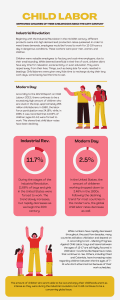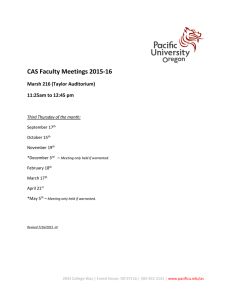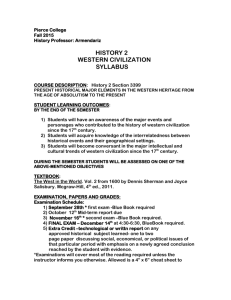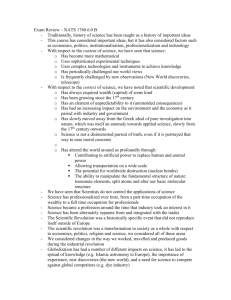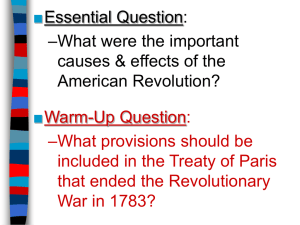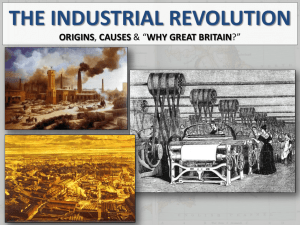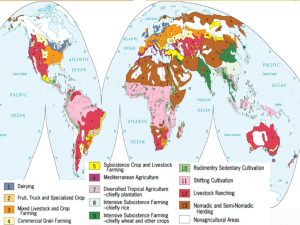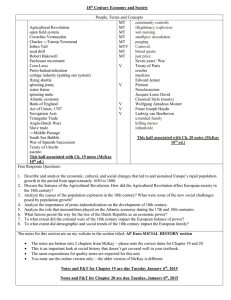Western Cultural Differences
advertisement
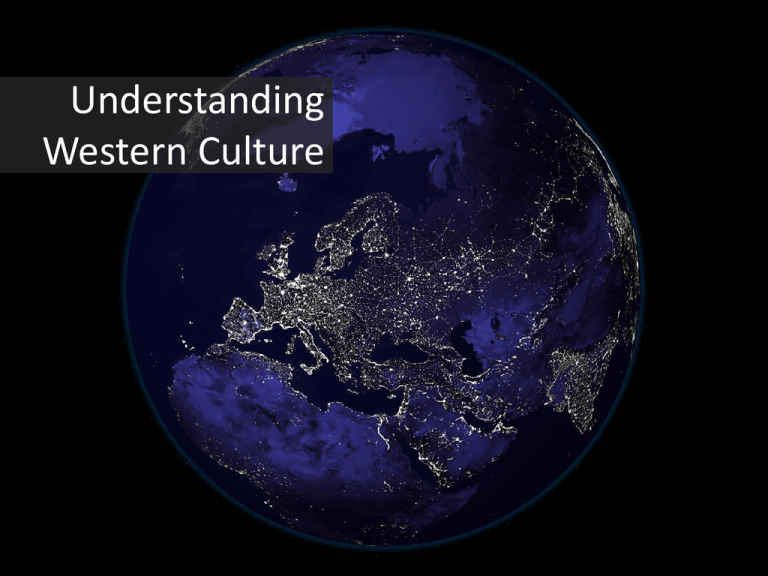
Understanding Western Culture What is Culture? Traditions Ethical Values Religion Society Science & Technology Politics Age Philosophy Art & Literature Education Social Class Organization Western culture ≠ Western Film / TV (but does influence it) Originates from Ancient Greece (Europe) Spread by Roman Empire (1st Century BC) Influenced by Christianity (4/5th Century) Stagnated during Dark Ages (5/6th Century) Oops! Rebirth: Renaissance (14 – 17th Century) New ideas: Scientific Revolution (17th Century) Logic & Reason: Age of Enlightenment (18th Century) Independence: American Revolution (Late 18th Century) Industrial Revolution (19th Century) Photo by Steve Rhodes Modern Civilization (Today) Core Ideas & Values Recognizes the right of private ownership, capital accumulation, exchange and profit Individuals should be able to act on their own reason without interference from others – i.e. freedom Reality- or fact-based thought and perception (Aristotle 384-322 BC) Reason Emphasis on the individual person who is independent and self-reliant Worldly happiness should be the focus of each person's life We live in a multicultural world where cultures: Transcend geography and race (no connection) Exist worldwide in some form (usually mixed) East vs. West What’s the difference? Illustrations by Yang Liu from “East meets West” book – www.yangliudesign.com Way to think 思维方式 Way of life 生活方式 Punctuality 准时 Connections 人际关系 Anger 对待愤怒 Queuing 排队 In the restaurant 在餐厅 Standard of beauty 美丽的标准 Way to solve problems 处理问题 Senior’s daily life 老人的日常生活 Shower time 洗浴时间 Boss 领导 The child 孩子 New things 对待新事物 Image of each other 想像中的对方 Cultural Differences* West (US / Europe) Logic Linear (direct associations) Communication Direct, verbal Identity Individual, independent Agreement / Disagreement Argumentative, verbal Punctuality Start and end on time Respect Success, achievement Business Relationship Economics come first Decision Making Distributed, proactive Time Horizon Short term (per quarter) Risk / Spending Risk-takers, spend East (China / East Asia) Spiral (roundabout) Indirect, implied Group orientated Hard to say no, non-verbal Appointments flexible Seniority, wisdom Relationship comes first Manager has final say Long term (years ahead) Risk-avoiders, save * but of course there are obvious exceptions Intercultural Competence Regional Experience Language Proficiency Openness & Tolerance Communicate Effectively • • • • • • • Speak slowly, maintain eye contact Use objective, accurate language Rephrase sentences where necessary Listen carefully and patiently Adapt your conversation style Don’t talk down to others Clarify what will happen next Uncomfortable Situations Deal With It 1. Know your neighbor 2. Be open and tolerant 3. Ask lots of questions “When in Rome, do as the Romans do” 入乡随俗 Thank you www.randomwire.com

